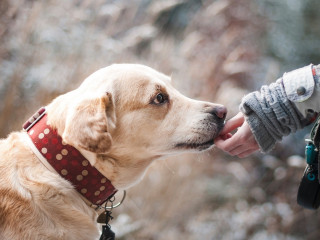Many products contain the sweetener xylitol. Despite being completely safe for people to consume, xylitol is poisonous to dogs.
We're here to help
What is xylitol?
Over the past few years there’s been a big increase in the use of sugar substitutes and sweetening agents. One of the most common is xylitol, which is a naturally occurring sugar alcohol found in some fruits and vegetables.
While xylitol can be found in many products, such as sugar-free chewing gum and chewable vitamins, it’s also becoming increasingly popular in baking. That means there’s a possibility it may be present in cakes and other sweet treats.
Xylitol is also sometimes referred to as ‘Birch Sugar’ so it is important to carefully check the ingredients list before feeding your dog anything. And, if you are not sure always err on the side of caution.
What should I do if my dog has swallowed xylitol?
For dogs, xylitol ingestion can lead to seizures or even death, so it’s important to contact your vet immediately or, out of hours, nearest Vets Now pet emergency clinic or 24/7 hospital.

How much xylitol is poisonous to dogs?
Even very small amounts of xylitol ingestion can cause serious health issues. Due to the differing amounts of xylitol present in various products, the amount of a product that is needed to be ingested before toxicity occurs varies.
It is therefore very important to call your Vet or Vets Now immediately if you suspect your pet has ingested any amount of xylitol.
Why is xylitol so dangerous for dogs?
Blood sugar is controlled by insulin which is a hormone released from the pancreas. In humans, xylitol does not stimulate the release of insulin, but in dogs, Xylitol is absorbed very quickly and causes potent stimulation of insulin release which then leads to a rapid drop in blood sugar (hypoglycaemia).
High doses of Xylitol can also cause irreversible liver damage.

What are the symptoms of xylitol poisoning in dogs?
After ingesting xylitol, dogs typically develop symptoms within 30 minutes (although they can be very rapid or take up to 12 hours). Signs of dog xylitol poisoning can include:
- vomiting
- lethargy
- weakness or lack of coordination
- tremors or seizures
- collapse
What is the treatment for dog xylitol poisoning?
Do not induce vomiting or give anything orally to your dog unless specifically directed to do so by your vet. Whilst there is no antidote for xylitol poisoning, rapid treatment by a vet is essential. Treatment may vary depending on how long ago your pet ate the xylitol.
Treatment options include inducing vomiting to prevent further absorption of the toxin. Hospitalisation for intravenous administration of glucose to treat hypoglycaemia if present. Along with intravenous fluids and medications to protect against liver damage.
What can I do to protect my dog from xylitol toxicity?
You should avoid feeding your dog any home baking, especially if sweeteners have been used. Similarly, if you do use a sweetener, make sure it is stored safely. Xylitol is also used widely in sugar-free chewing gum and dogs are often poisoned after swallowing gum found in their owner’s bag. Any product advertised as sugar-free should be kept out of reach of your pet.
When brushing your dogs’ teeth, only use toothpaste intended for dogs, never one made for human use.
What other products is xylitol found in?
Xylitol is contained in a whole host of sugar-free products you probably didn’t know about, including some baking and pudding mixes, cakes and buns, sugar-free chewing gum and mints, flavoured waters, medicines and vitamins, jams and honey, protein bars, toothpaste and mouthwash, jelly sweeties, peanut butter and cosmetics and baby wipes.

